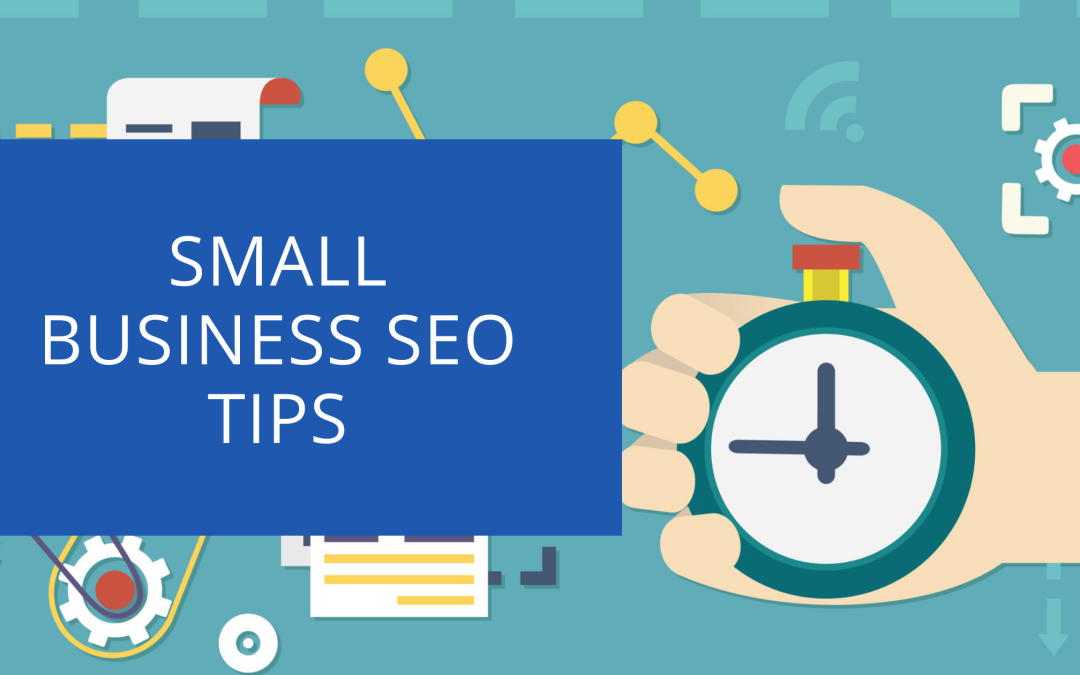Getting your website ranked well in search engines is one of the best ways to get new business. However, many small businesses don’t know where to start when it comes to SEO.
Luckily, there are some simple tricks that you can use to improve your rankings and attract more customers through the web! This post will give you 10 effective tips for improving your website’s SEO so that you can rank higher on Google and generate more revenue.
Contents
10 Small Business SEO Tips
1. Improve your site’s load speed
Keep it clean! Delete any dead pages or other webpages that don’t provide value to users, and keep all of the other webpages updated with quality content.
2. Focus on the right keywords
 There are many factors included in search engine rankings, so be sure you focus on different keywords for each individual page of your website. Doing so will help you appeal to a larger audience than just focusing on one keyword at once.
There are many factors included in search engine rankings, so be sure you focus on different keywords for each individual page of your website. Doing so will help you appeal to a larger audience than just focusing on one keyword at once.
3. Optimise your images
Optimise your images by using SEO-friendly file names like “dog_breeds_and_pictures” instead of “DSC00026” which is much more difficult for Google bots to read and index into their database. Make sure these files can easily be found through search engines as well.
Make use of social media platforms like Twitter, Facebook, and LinkedIn, and include links back to your website on each platform. This will help you build links back to your site, which is a key factor in improving your SEO rankings.
5. Include videos and other multimedia
Include videos and other multimedia content on your website whenever possible. Not only does this make for a more engaging user experience, but it also helps improve your search engine rankings as well.
6. Create a blog and regularly post new content
Create a blog and regularly post new content that is relevant to your business niche. This will show search engines that you are an authority on the topic at hand and can result in higher rankings over time.
7. Link out to high-quality websites
Link out to high-quality websites from within your own website’s content. When other quality websites link back to your site, it helps improve your rankings with search engines since Google determines what websites are most relevant for a certain topic.
8. Optimise your website’s local listings
 Optimise your website’s local listings by verifying each listing and including keywords in the business description that relates to your products or services.
Optimise your website’s local listings by verifying each listing and including keywords in the business description that relates to your products or services.
9. Create an email list
Create an email list which you can use as a customer acquisition strategy throughout the year. This will help drive more traffic back to your webpage without having to rely on paid ads all of the time!
10. Use Google’s Webmaster Tools
Use Google’s Webmaster Tools to identify any errors on your website that are preventing it from being properly indexed by their search engine. Correcting these errors can help improve your website’s SEO ranking over time.
Small Business SEO FAQs
What is SEO? How can I learn more about it?
SEO stands for search engine optimisation. It is the process of increasing your website’s visibility in organic (or “natural”) searches on a search engine site like Google or Bing.
Many factors go into how well you rank, including but not limited to: load speed, backlinks from other websites, and keywords used throughout your content on all pages of your site.
You don’t need any previous experience with SEO to do this yourself- just some time and patience as you work through each step! Read tutorials online if you’re interested in learning more about SEO for beginners.
Can my page still be found if I don’t do SEO?
 Pages that are not optimised for search engines can still be found, but they will likely rank much lower than pages that have been properly optimised.
Pages that are not optimised for search engines can still be found, but they will likely rank much lower than pages that have been properly optimised.
It is important to remember that most people never look beyond the first page of search results, so if you’re website isn’t ranking in the top few spots then you’re losing out on a lot of potential traffic and revenue.
What’s the point of doing SEO if Google keeps changing its algorithm?
Google’s algorithms are always changing, which is why it’s important to continually work on your website’s SEO even after it has been initially optimised.
The goal is to make sure your site remains compliant with Google’s latest standards, as they can change at any time.
Plus, as your website’s SEO improves you will likely see an increase in traffic and revenue regardless of Google’s algorithm fluctuations.
If I’m not seeing results from my current SEO efforts, should I give up?
No! SEO is a long-term investment that takes time to show results. If you’re not seeing the desired results after a few months of working on your website’s SEO, then it may be worth considering hiring outside SEO consultants to help you out.
There are many great options available, so do some research and find the right one for you. Just remember that SEO is a never-ending process, so don’t give up if you don’t see immediate results.
We Offer SEO Services Nationwide
- Chester:https://mediakynect.co.uk/seo-chester/
- Wirral: https://mediakynect.co.uk/seo-wirral/
- Liverpool: https://mediakynect.co.uk/seo-liverpool/
- North Wales: https://mediakynect.co.uk/seo-north-wales/
- Wrexham: https://mediakynect.co.uk/seo-wrexham/
Conclusion
Small businesses have a lot of options when it comes to improving their website’s SEO, but following these ten tips will give you a good place to start! By focusing on different areas like load speed, site content, and social media outreach, you can gradually see improvements in your website’s search engine rankings.
And who knows – with some hard work and dedication, you might just find yourself at the top of Google’s search results pages! For more information on how to improve your website SEO, be sure to contact us.

